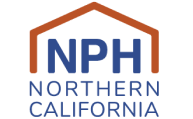Regional Planning Efforts
Local Funding Campaigns
November 20, 2013Broadband Toolkit
November 20, 2013
In 2008, California passed Senate Bill 375, which required each of the state’s 18 metropolitan areas to adopt a Sustainable communities Strategy (SCS) that would plan for each region’s population growth in a way that would reduce greenhouse gas emissions. In 2013, the Association of Bay Area Governments (ABAG) and the Metropolitan Transportation Commission adopted Plan Bay Area, our region’s long-range, integrated transportation and housing/land-use strategy compromised of both the SCS and the Regional Transportation Plan. NPH has been involved in the creation of the Plan Bay Area and will continue to be involved as the Plan rolls out. We do this primarily through our involvement with the Great Communities Collaborative, a unique collaboration between NPH and a group of regional non-profits and community foundations with the common vision of equitable and sustainable growth in the Bay Area through planning for walkable, transit-friendly communities.
Great Communities Collaborative
The Great Communities Collaborative (GCC) is a network of local, regional, and national organizations working in concert with a cohort of funders, with the collective vision of creating healthy, thriving, and affordable neighborhoods in the Bay Area that are anchored by transit and linked to opportunities and amenities. The GCC engages in regional projects that aim to set a regional strategy to advance equitable growth, through policies, plans, and funding priorities. To complement this work, GCC partners work on a local level to engage communities in ensuring that affordable housing, community-serving retail, and services are located near transit, so that people are linked to opportunities and amenities
To date, NPH has worked in a number of specific communities in the Bay Area including San Leandro, Santa Rosa and Pittsburg. We have also worked in partnership with Center for Community Innovation and Reconnecting America in creating the report “Transit-Oriented for All: The Case for Mixed-Income Transit Oriented Communities in the Bay Area.” NPH was also involved in the creation of Plan Bay Area – the region’s Sustainable Communities Strategy and 2040 Regional Transportation Plan – that lays out the region’s growth strategy to expand housing and transportation choices that will create healthier communities and a stronger economy.
Regional Prosperity Plan Work
An equitable regional strategy that takes into account the housing and economic needs of lower-income households, is critical to a healthy physical environment, healthy public, lowered commute times and traffic congestion, and vibrant, thriving Bay Area neighborhoods.
The Regional Prosperity Plan (RPP) has been a three-year process funded by the U.S. Department of Housing and Urban Development (HUD) to develop and implement a sustainable regional growth strategy that focuses on low-income residents who are unable to benefit from the wealth of the region. This work is being led by a consortium of stakeholders representing public, private, and not-for-profit organizations around the nine-county Bay Area.
In this final year of the RPP, NPH has worked with Steering Committee members to identified twenty (20) key strategies for improving regional prosperity through equity, affordable homes, and low- and middle-wage jobs. To effectively implement each strategy, members have also identified a series of actions that regional and local public agencies, regional non-profits, funders, and advocates need to undertake, including land and funding for affordable homes and neighborhood stabilization near transit and jobs.
The seven (7) strategies necessary to ensure an adequate supply of affordable housing are as follows:
Strategy 1: Land for affordable homes near transit and/or jobs
Strategy 2: Local and regional funding and financing for affordable housing
Strategy 3: State and Federal funding and financing for affordable housing
Strategy 4: Community support for affordable housing
Strategy 5: Regulatory reform to support affordable housing
Strategy 6: Regional collaboration and partnerships for affordable housing and neighborhood stabilization
Strategy 7: Data and analysis to support affordable housing and neighborhood stabilization
For more information, please contact our Policy Director, Michael Lane, at michael (at) nonprofithousing.org, or at (415) 989-8160 x 22.

